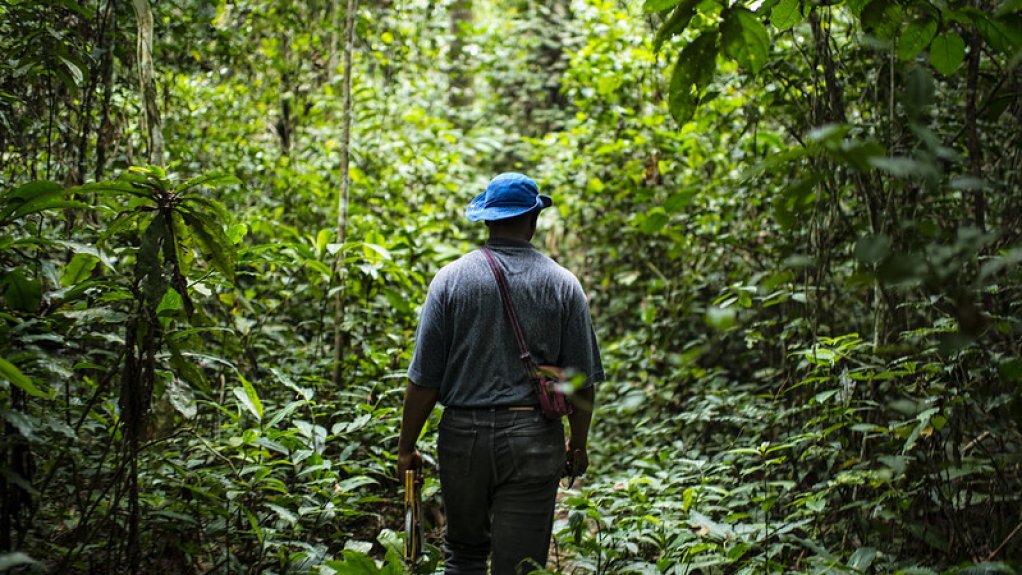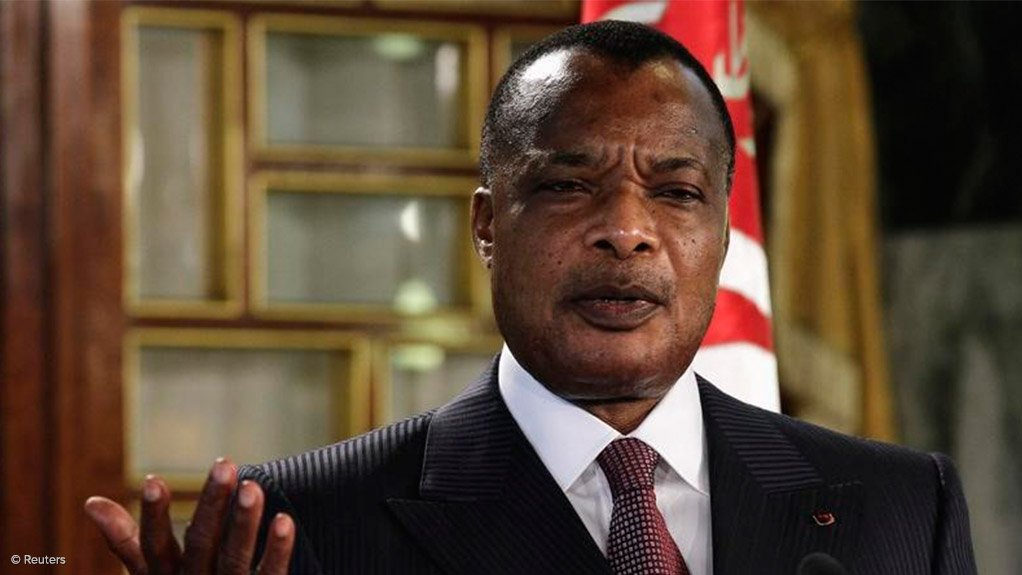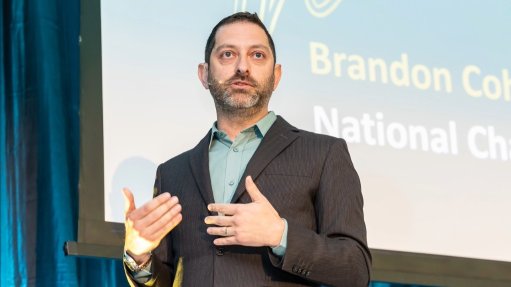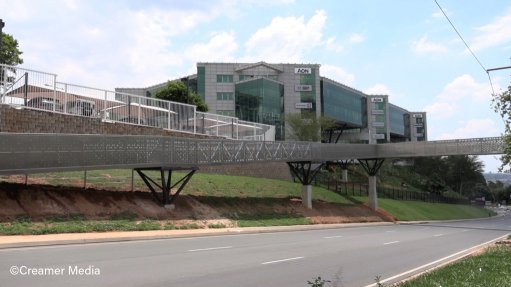Carbon prices should be 20-times higher, the two Congos say



Prosper Sabongo a PHD student measures the circumference of a Funtunia Africana in the forest reserve near the village of Masako. Kisangani, Democratic Republic of Congo.
Photo by Photo by Ollivier Girard/CIFOR
Republic of Congo President Denis Sassou Nguesso
Carbon credits produced in Africa and used by companies to offset pollution by paying for forest conservation on the continent should be at least 20 times more expensive than current prices, two Presidents of Congo Basin nations said.
A higher price would reduce the appetite for resource extraction and spur development in poorer countries, particularly those in Africa, according to Democratic Republic of Congo’s Felix Tshisekedi and Republic of Congo’s Denis Sassou Nguesso.
It would also address a large gap between prices for carbon credits in Africa’s voluntary carbon market and the more regulated markets in Europe and the US, Tshisekedi said at a United Nations Development Program side event at the annual United Nations General Assembly meetings on Tuesday.
The two Congo’s encompass the majority of Central Africa’s Congo Basin, the world’s second-largest tropical forest after the Amazon and a key carbon sink in the fight against climate change. Forests absorb carbon, counteracting emissions.
“We have many African countries with deep carbon sinks who don’t even have a registry” for credits, UN Assistant Secretary General and UNDP’s regional Africa director, Ahunna Eziakonwa, said. “And therefore the pricing continues to disadvantage several of these countries.”
In addition to the Congo Basin forest, Africa has vast swathes of savanna, about a fifth of the world’s mangroves and the world’s biggest carbon-storing tropical peatlands.
Africa accounts for 13% of global production of the credits, according to RippleNami, a California-based data company. A single carbon credit is equal to a ton of carbon dioxide or its equivalent either removed from the atmosphere or prevented from entering it in the first place. They can be bought by polluters to offset their emissions of greenhouse gases.
This year countries including Zimbabwe and Kenya have put in place regulations to oversee the production of the offsets on their territory and to take a greater share of revenue for the governments and host communities.
Tshisekedi called for a carbon credit floor price of at least $100 per ton of carbon dioxide or its equivalent, compared to the going average of $5.
A higher price would reduce the “unjustified gap” between credits on the regulatory market and the voluntary market, according to the UNDP. Carbon credits in Europe and the US regulated markets range from $80 to $140, according to the agency.
“While it’s clear that the climate fight is a common responsibility, the obligation of equity in financing undoubtedly falls to the will and responsibility of industrialized countries,” Tshisekedi said.
Tshisekedi also called for more regulation of the voluntary market, which is actually several markets with little oversight of often exaggerated claims about pollution reduction.
Some researchers are dubious about the impact of the voluntary credits.
Last month, a study published in the journal Science that analyzed 18 carbon offset projects under the REDD+ program, including two in the DRC, found that just 6% of a potential 89-million credits were linked to additional carbon reductions.
Another study released last week by the Berkeley Carbon Trading Project said such REDD+ credits can’t be viewed as a reliable tool for offsetting, threatening the viability of a program used by many publicly traded companies.
REDD+ credits represent roughly a quarter of carbon offsets issued globally.
Despite these concerns, investor interest in growing. About $36-billion has been invested in carbon credit projects between 2012 and 2022, with investment levels “indicative of an industry planning for significant growth,” according to Trove Research.
“Africa risks losing on this market if Africa is not prepared,” Eziakonwa said. “There has to be a political convergence around a floor where, whether you are in Gabon or in South Sudan you’re getting a fair deal for what you have to offer.”
Article Enquiry
Email Article
Save Article
Feedback
To advertise email advertising@creamermedia.co.za or click here
Comments
Announcements
What's On
Subscribe to improve your user experience...
Option 1 (equivalent of R125 a month):
Receive a weekly copy of Creamer Media's Engineering News & Mining Weekly magazine
(print copy for those in South Africa and e-magazine for those outside of South Africa)
Receive daily email newsletters
Access to full search results
Access archive of magazine back copies
Access to Projects in Progress
Access to ONE Research Report of your choice in PDF format
Option 2 (equivalent of R375 a month):
All benefits from Option 1
PLUS
Access to Creamer Media's Research Channel Africa for ALL Research Reports, in PDF format, on various industrial and mining sectors
including Electricity; Water; Energy Transition; Hydrogen; Roads, Rail and Ports; Coal; Gold; Platinum; Battery Metals; etc.
Already a subscriber?
Forgotten your password?
Receive weekly copy of Creamer Media's Engineering News & Mining Weekly magazine (print copy for those in South Africa and e-magazine for those outside of South Africa)
➕
Recieve daily email newsletters
➕
Access to full search results
➕
Access archive of magazine back copies
➕
Access to Projects in Progress
➕
Access to ONE Research Report of your choice in PDF format
RESEARCH CHANNEL AFRICA
R4500 (equivalent of R375 a month)
SUBSCRIBEAll benefits from Option 1
➕
Access to Creamer Media's Research Channel Africa for ALL Research Reports on various industrial and mining sectors, in PDF format, including on:
Electricity
➕
Water
➕
Energy Transition
➕
Hydrogen
➕
Roads, Rail and Ports
➕
Coal
➕
Gold
➕
Platinum
➕
Battery Metals
➕
etc.
Receive all benefits from Option 1 or Option 2 delivered to numerous people at your company
➕
Multiple User names and Passwords for simultaneous log-ins
➕
Intranet integration access to all in your organisation
















